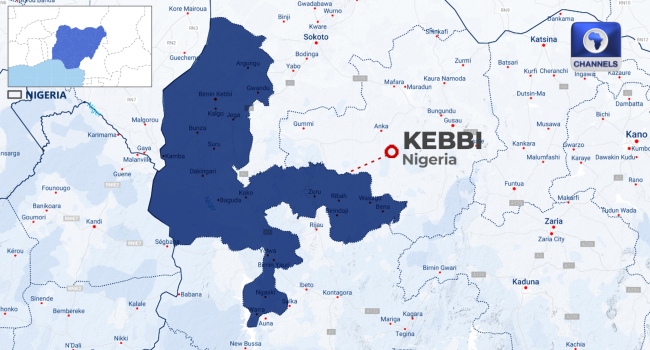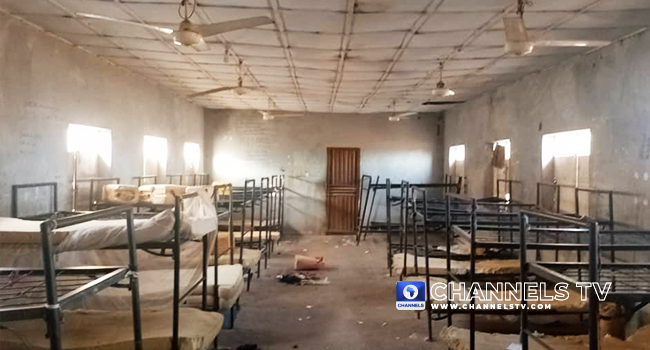The Kebbi State Government has ordered the closure of all public and private secondary schools, as well as all tertiary institutions, across the state.
This is contained in a statement jointly issued by the Hon. Commissioner for Higher Education, Alhaji Issa Abubakar-Tunga and Commissioner for Basic and Secondary Education, Halima Bande, in Birnin Kebbi.
READ ALSO: Yobe Orders Closure Of Boarding Schools Over Rising Insecurity
The commissioners stated that the closure of both public, private, and state-owned institutions had become necessary following recent cases of attacks in parts of the state.
They listed the affected tertiary institutions to include: Kebbi State Polytechnic, Dakingari; Abdullahi Fodio University of Science and Technology, Aliero; College of Health Sciences and Technology, Jega; Adamu Augie College of Education, Argungu; and School of Remedial Studies, Yauri.
The commissioners, however, said the only institution not affected is the College of Nursing Sciences and Midwifery located in the state capital, Birnin Kebbi.”
While urging all the institutions’ management to comply with the state government’s directives, the commissioners advised them to remain calm as the new resumption date would be communicated in due course.
Bandits Abduct 25 Schoolgirls
Gunmen kidnapped 25 people and killed a staff member in an early morning raid on the Government Girls Comprehensive Senior Secondary School (GGCSS) in Maga, in the state.
The attack comes more than a decade after 276 girls were abducted from Chibok in the restive northeastern Borno State and sparked international outcry and rallied people around the “#BringBackOurGirls” global social media campaign.
Since then, there has been a string of other abductions involving school children across the northern parts of Nigeria.
Police said the gang, armed with “sophisticated weapons, shooting sporadically, stormed the Government Girls Comprehensive Secondary School” in Kebbi State at about 4:00 am (0300 GMT).
Police were deployed, but “unfortunately, the suspected bandits had already scaled through the fence of the school and abducted 25 students from their hostel to an unknown destination,” police said in a statement.
The school deputy head was shot dead while a security guard was injured during the attack, according to a report prepared for the United Nations.
The military, police tactical units and local vigilantes have “been deployed in the area and they are currently combing the bandits’ routes and nearby forest” in a bid to rescue the abducted students and arrest the gangs, police said.
This is the second mass school abduction in Kebbi in four years, following the June 2021 incident when bandits took more than 100 students and staff members from a government college.
The students were released in batches over two years after their parents paid a ransom. Some of the students were forcefully married off and returned with babies.
Hostage-Taking Spiralling
The northwest of the country has, for years, been seeing a rise in heavily armed criminal gangs known as “bandits” who steal cattle, raid villages, kidnap and kill residents and loot and burn homes.
It has become the region most affected by kidnappings.
As Africa’s most populous country, it has also been plagued by armed violence since the 2009 emergence of the Boko Haram group in the Lake Chad basin, in the northeast of the country.
The kidnapping of schoolgirls from the town of Chibok on April 14, 2014, made headlines around the world. Almost 100 of the captives remain missing.
More than 130 schoolchildren were kidnapped by gunmen in March last year in Kuriga, in another northwestern state of Kaduna.
They were later released unharmed.
Data on kidnapping in Nigeria is unreliable mainly due to under-reporting, but according to UNICEF, there have been over 2,400 incidents of “grave violations verified, affecting over 6,800 children” in Nigeria’s northeastern region in nine years since 2014.
A report last year by the charity Save the Children found more than 1,680 pupils were kidnapped in Nigerian schools from early 2014 to the end of 2022.
As the country grapples with security challenges on several fronts, hostage-taking has spiralled into a nationwide industry and become a favoured tactic of bandit gangs and jihadists.
In the northwest, authorities have tried to negotiate with bandits, striking peace deals and deploying vigilante groups.
But they have had little success, and critics say the kidnapping crisis is out of control.





